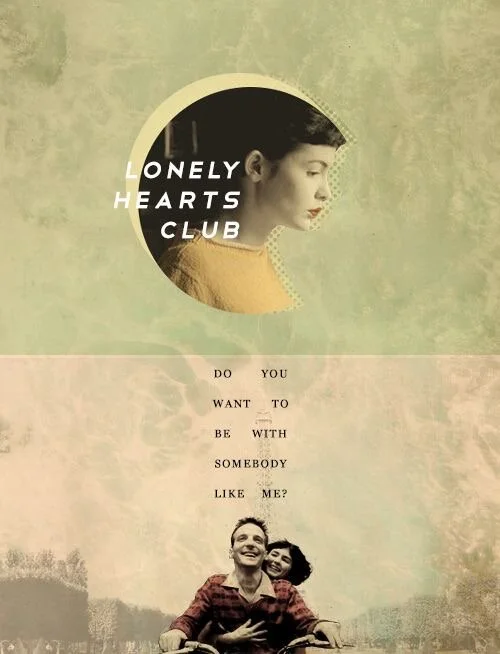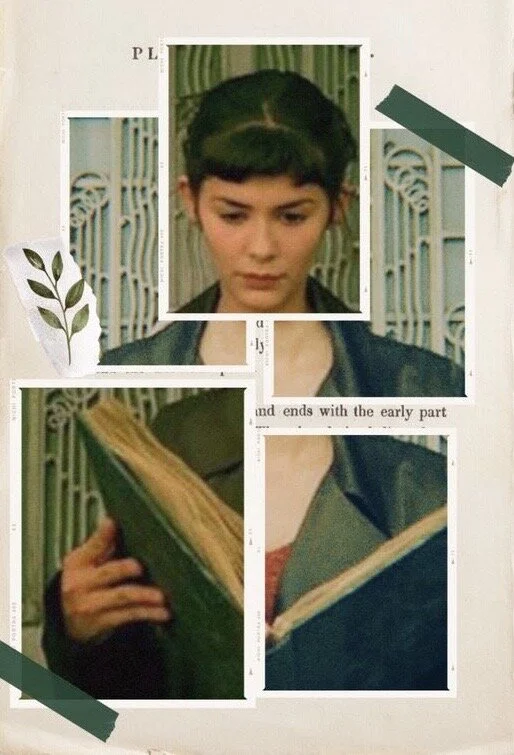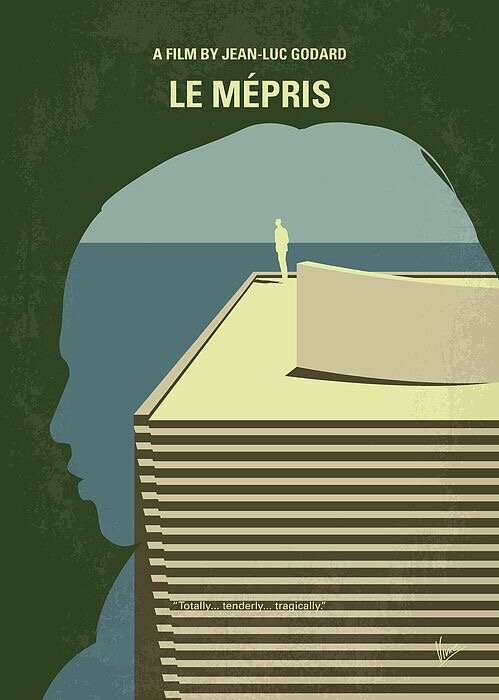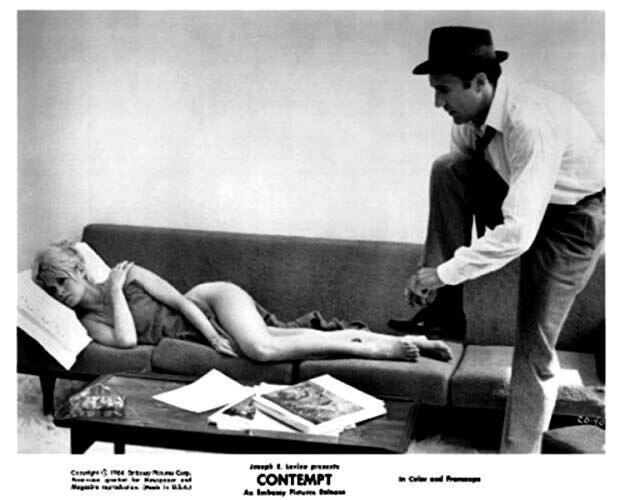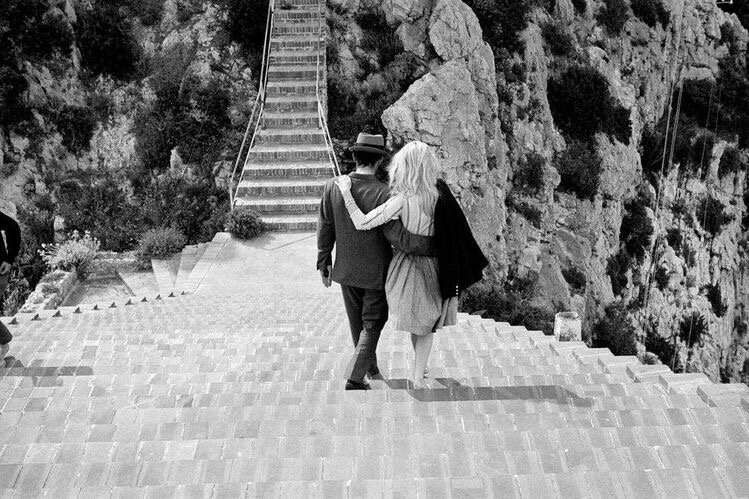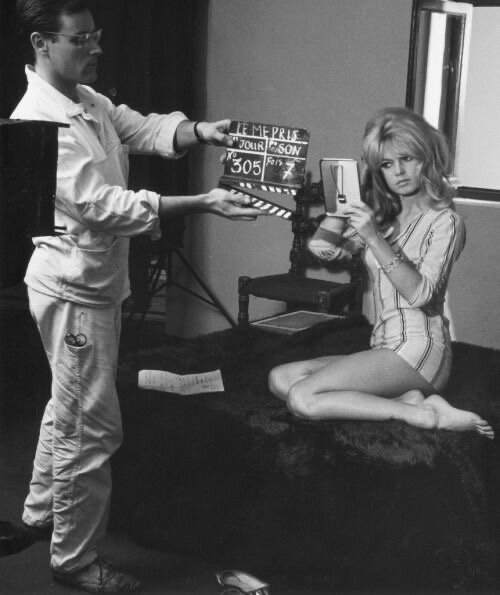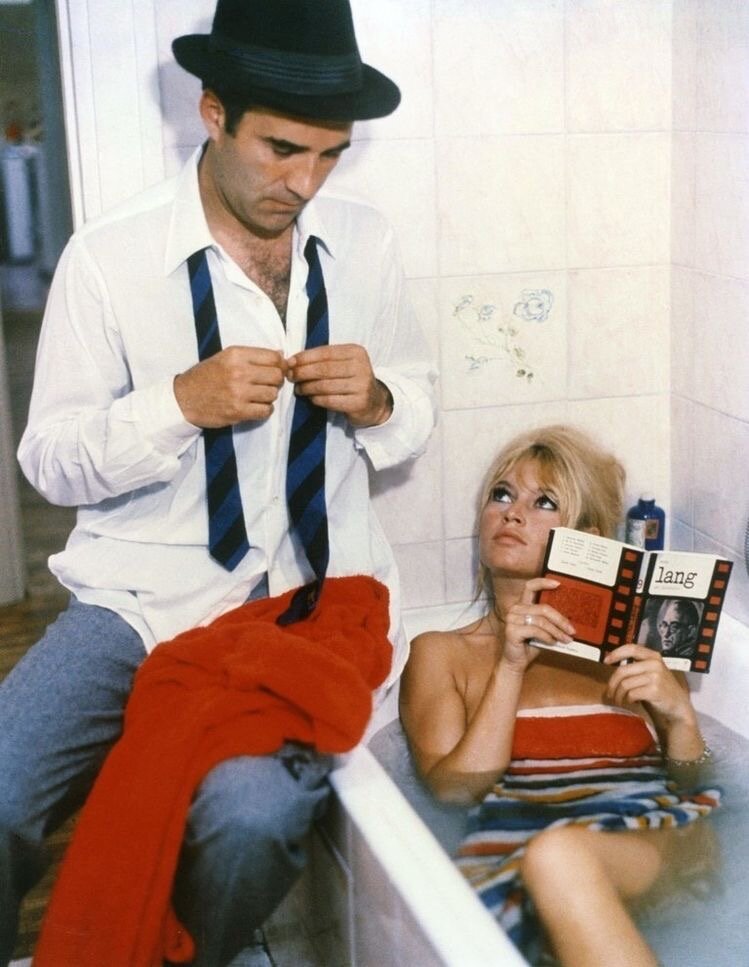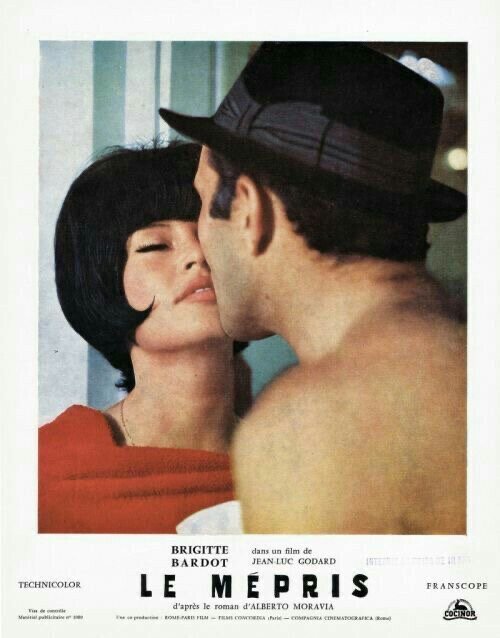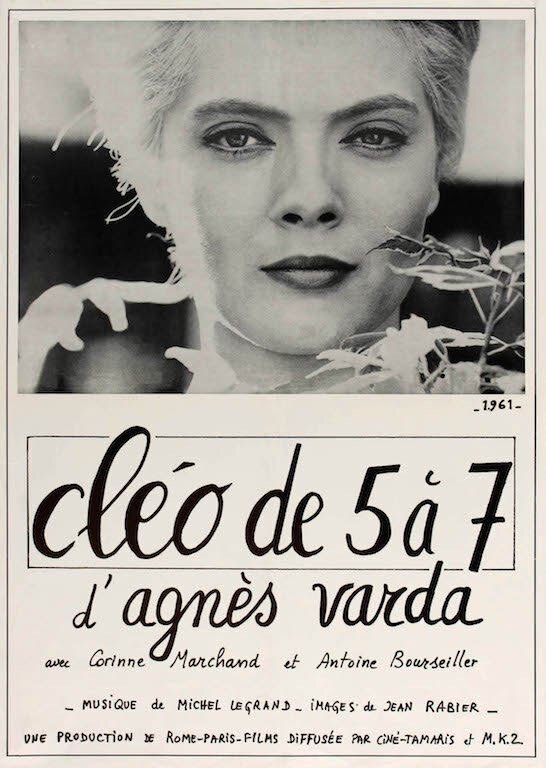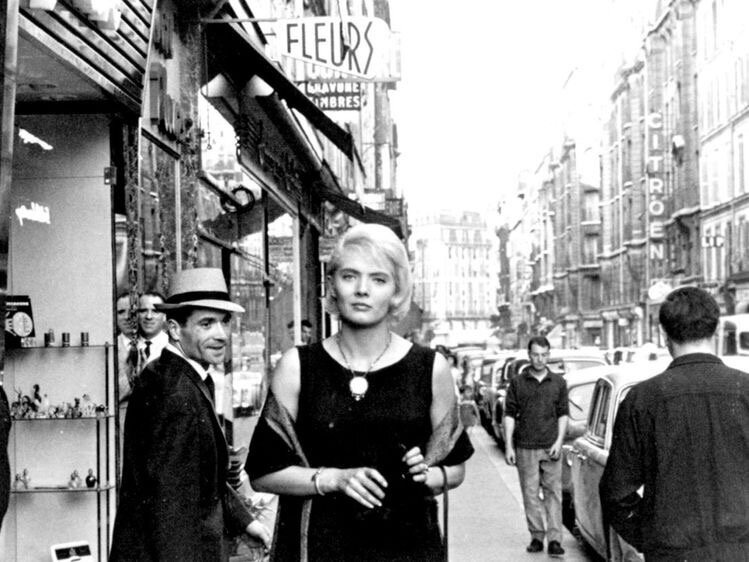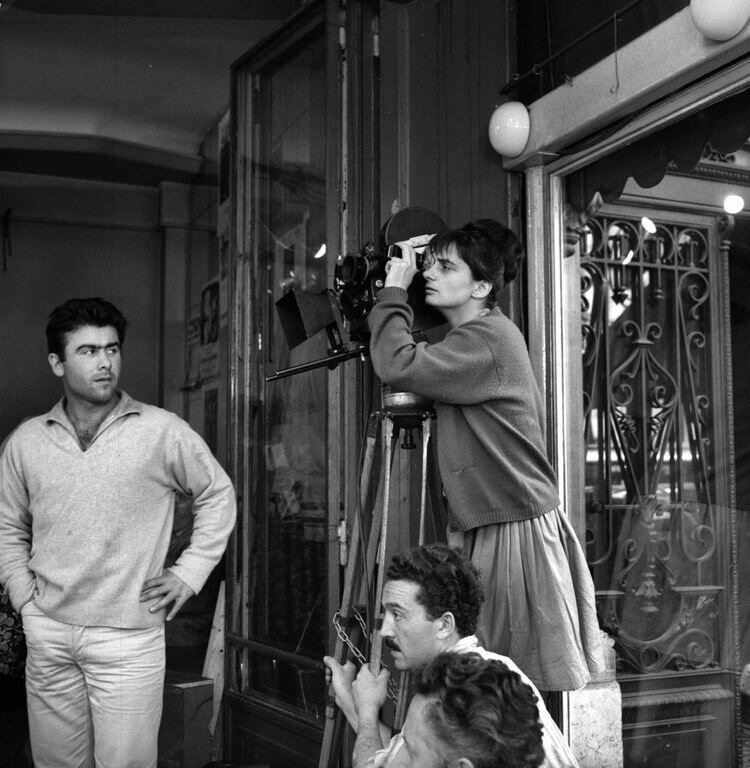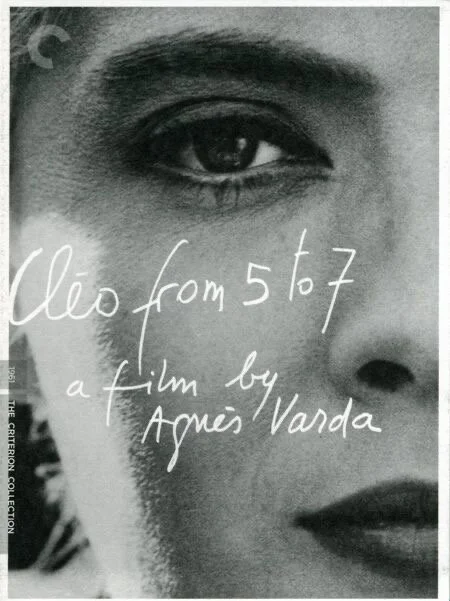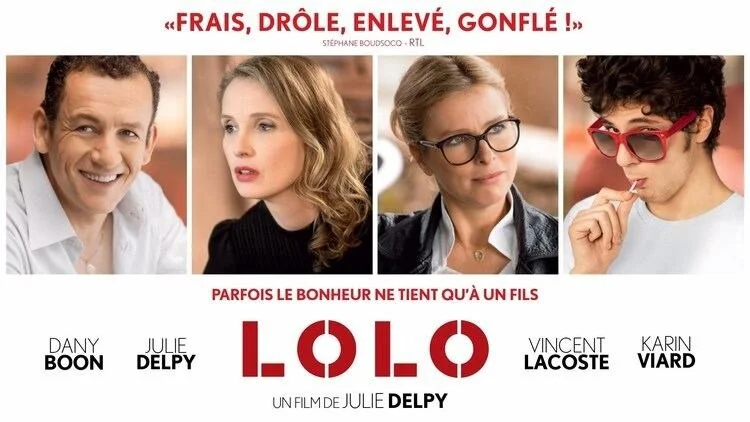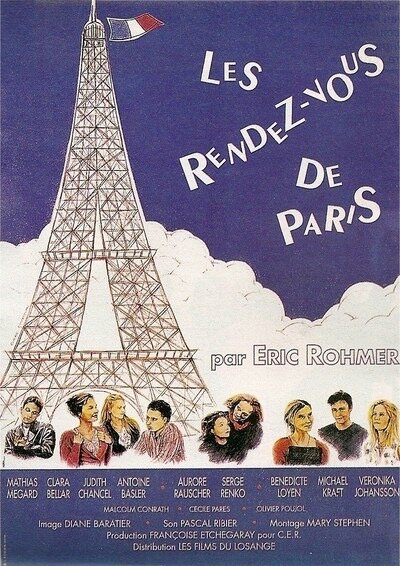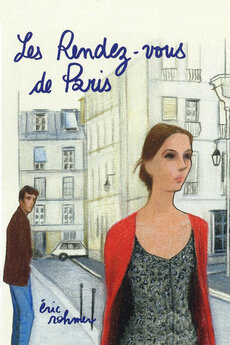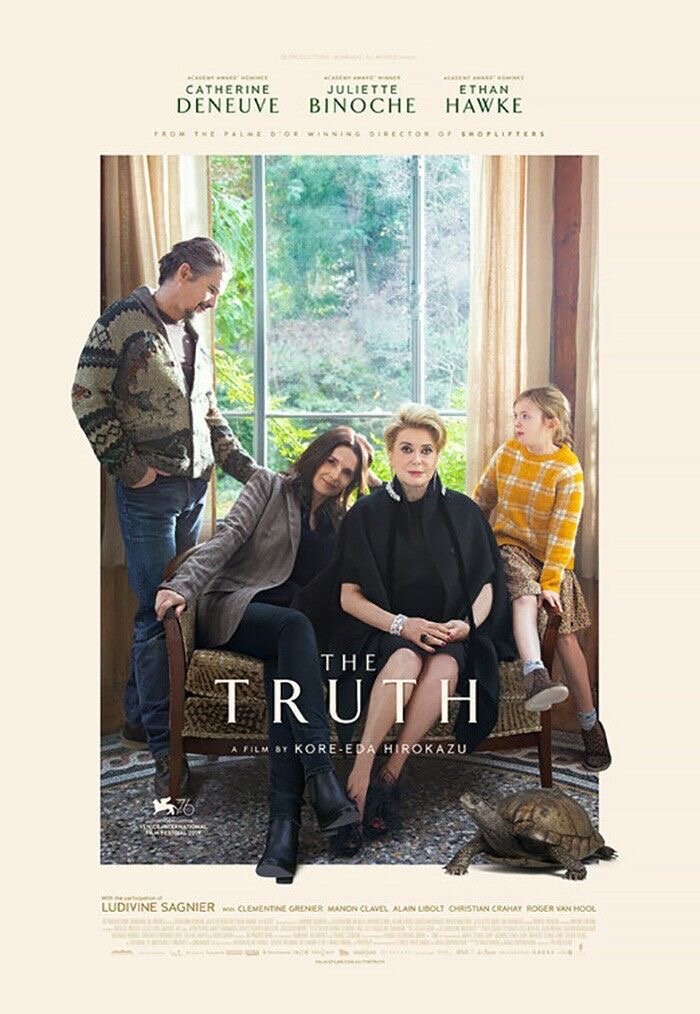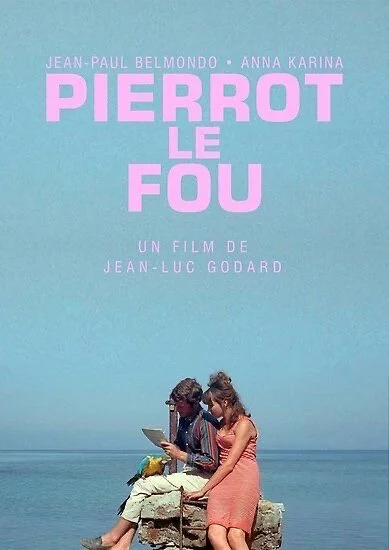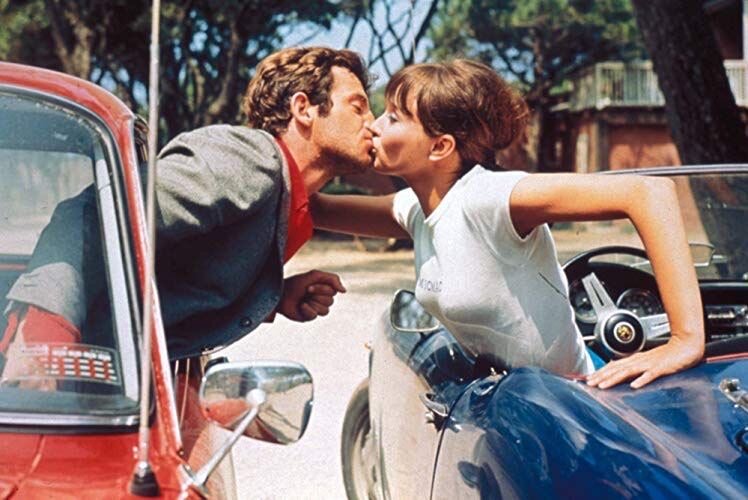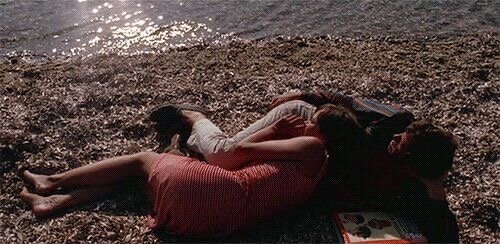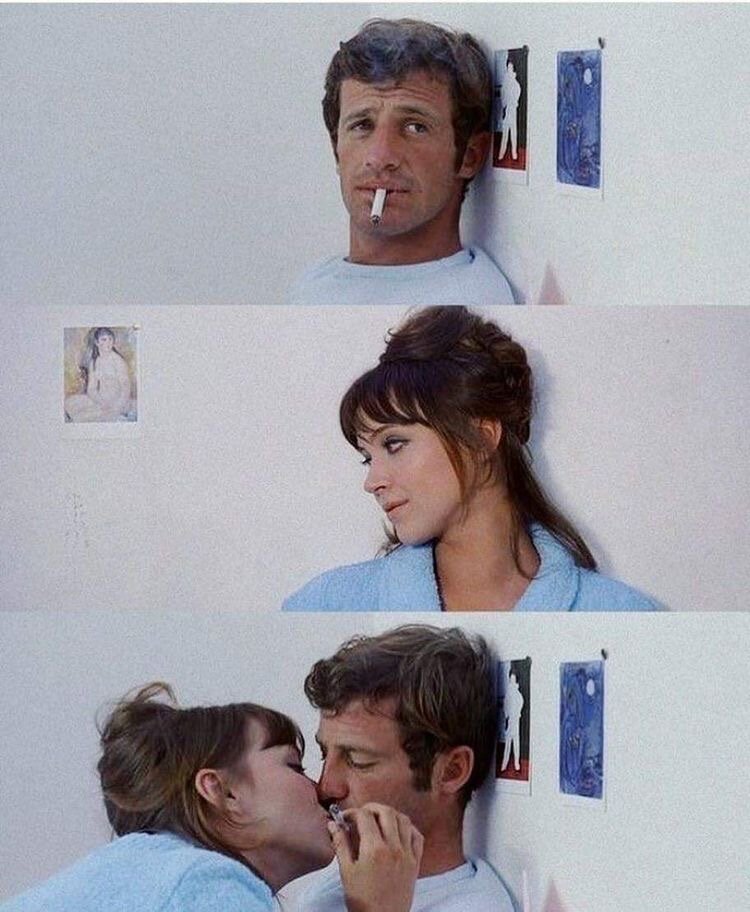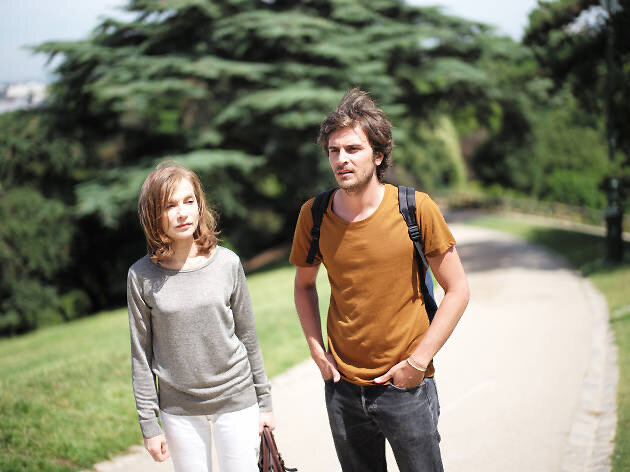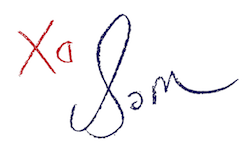The Best French Films To Watch This Weekend
With all the spare time we now have I highly recommend diving into some French cinema this weekend! Here are a list of my favorites to tickle your Francophile fancy!!!
Amélie
Director: Jean-Pierre Jeunet
Arguably the quintessential subtitled film for people who don’t like subtitled films (it’d be a dust-up between this and ‘Cinema Paradiso’), Jean-Pierre Jeunet’s rose-tinted Parisian romance is likely to be the role for which actress Audrey Tautou will be remembered until her dying day. The film is all the more interesting for remaining an eccentric one-of-a-kind that feels every bit the product of its writer-director’s unique sensibility and worldview. Revisiting it now, it still has the same strengths: the experience of watching is like being swept along on a tidal wave of cheeky jokes and oddball observations.
Le Mépris
Director: Jean-Luc Godard
Le mépris. That’s ‘contempt’ in French, and that’s the feeling Camille (Brigitte Bardot) increasingly has for her writer boyfriend Paul (Michel Piccoli) during the time he’s summoned to Rome’s Cinecittà film studios and the stunning island of Capri to help Austrian-born Hollywood director Fritz Lang (playing himself) and coarse American producer Prokosch (Jack Palance) improve their movie version of Homer’s ‘The Odyssey’. Much of the film gives us Camille and Paul’s disintegrating relationship as he’s simultaneously seduced and repelled by the world of filmmaking. It shows Godard and his collaborators – especially cinematographer Raoul Coutard, composer Georges Delerue and editor Agnès Guillemot – at the height of their powers, creating scenes and moments of extraordinary visual power, suggestion and beauty. Like Camille and Paul’s love-hate relationship, it’s the ultimate testament to Godard’s complicated relationship with his art.
Cléo from 5 to 7
Director: Agnès Varda
‘Cléo from 5 to 7’ (1962) was French new waver Agnès Varda’s second feature and is filled with the beauty of Paris’s natural light. ‘Hold on, pretty butterfly!’ says Cléo (Corinne Marchand), a fretful and fame-occupied singer, to herself as she prepares to roam the city for two hours while awaiting a possibly momentous doctor’s verdict. It’s experimental and free-wheeling in design – Varda gives us overlapping dialogue, parodic inserts, a documentarist’s eye mixed with a painter’s, found sound and Michel Legrand’s songs, and juxtaposes frippery with political reality. Quietly touching and profound, it epitomises the youthful delight Varda always shows for the tools at her disposal and her sensitive and easeful way of expressing the sways and shifts of life, love and desire.
LOLO
Director: Julie Delpy
Violette, a 40-year old Parisian workaholic with a career in the fashion industry, falls for a country bumpkin computer geek from Biarritz, Jean-René, while on a spa holiday with her best friend, the promiscuous Ariane. Jean-René moves to Paris to be with Violette and meets her young adult son, Eloi, who still goes by the babyish name Lolo. Lolo is a self-professed artist, and his mother supports him utterly. He appears to welcome his mother's new love; but sets out to wreak havoc in their relationship. Lolo, a moocher who requires his mother's universe to be centered on him, ups his game when nothing seems to break the couple's relationship. He plants a virus in Jean's newly coded software for a bank; running the software on the buyer's system infects their whole network, and Jean-René is arrested. Jean-René warns Violette that all these mishaps are caused by Lolo and he has found evidence in Lolo's diary. Later, at Lolo's drab art exhibition Ariane's daughter reveals Lolo's string of efforts to sabotage Violette's love life, and Ariane tells Violette. Jean-René clears his name by fixing the trouble and gains tenure in his company. Violette confronts Lolo with the facts, but Lolo tries to emotionally blackmail her. Violette finally cuts the emotional cord with Lolo and moves in with Jean-René. Lolo finds it hard to adjust to his new life without the presence of his mother. Later Violette realizes Jean-René might be facing the same issue with his daughter Sabine, as she did with her son.
RENDEVOUS IN PARIS
Director: Eric Rohmer
“Rendezvous in Paris,” which tells three stories in one film, is one of the best of Eric’s works. Different stories of young women and men coming together and coming apart in Paris' romantic settings, are organized in four distinct chapters: (1) Le rendez-vous de 7 heures / The 7 p.m. rendezvous; (2) Le lendemain... / The next morning; (3) Les bancs de Paris / The seats of Paris' parcs; (4) Mère et Enfant, 1907 / Mother and Child, 1907
Blanc
Director: Krzysztof Kieslowski
Karol (Polish) marries Dominique (French) and moves to Paris. The marriage breaks down and Dominique divorces Karol, forcing him into the life of a metro beggar and eventually back to Poland. However, he never forgets Dominique and while building a new life for himself in Warsaw he begins to plot.
The TRUTH
Director: Hirokazu Koreeda
Fabienne is a star; a star of French cinema. She reigns amongst men who love and admire her. When she publishes her memoirs, her daughter Lumir returns from New York to Paris with her husband and young child. The reunion between mother and daughter will quickly turn to confrontation: truths will be told, accounts settled, loves and resentments confessed.
Monsieur Hire
Director: Patrice Leconte
Monsieur Hire is a maladjusted, balding, middle-aged man living in France. He doesn't like to talk to people. A young woman is murdered and a police detective suspects M. Hire, just because his neighbors think he is strange
The kid with a bike
Directors: Jean-Pierre Dardenne, Luc Dardenne
At about 11, the stubborn and impulsive Cyril seems on his way to delinquency: he has no mother, his father wants a new life without him, so he's in a foster institution. He searches for his father, wanting him and his bike. Through the intersession of Samantha, a hairdresser Cyril happens upon, he gets his bike back, and she offers to take him into her home on weekends. He remains aloof from her and gets involved with a young crook. Is Cyril intent on driving Samantha away - and what then?
pierrot le Fou
Director: Jean-Luc Godard
Ferdinand Griffon is unhappily married and has been recently fired from his job at a TV broadcasting company. After attending a mindless party full of shallow discussions in Paris, he feels a need to escape and decides to run away with ex-girlfriend Marianne Renoir, leaving his wife and children and bourgeois lifestyle. Following Marianne into her apartment and finding a corpse, Ferdinand soon discovers that Marianne is being chased by OAS gangsters, two of whom they barely escape. Marianne and "Pierrot" – the unwelcome nickname meaning "sad clown", which Marianne gives to Ferdinand during their time together – go on a travelling crime spree from Paris to the Mediterranean Sea in the dead man's car. They lead an unorthodox life, always on the run. When they settle down in the French Riviera after burning the dead man's car (full of money) and sinking a second car into the Mediterranean Sea, their relationship becomes strained. Pierrot ends up reading books, philosophizing, and writing in his diary. Marianne becomes bored by their living situation and insists they return to town, where they meet one of their pursuers in a nightclub. The gangsters waterboard Pierrot and depart. In the confusion, Marianne and Pierrot are separated. He settles in Toulon while she searches for him. After their eventual reunion, Marianne uses Pierrot to get a suitcase full of money before running away with her real boyfriend Fred, to whom she had previously referred as her brother. Pierrot shoots Marianne and Fred, then paints his face blue and decides to blow himself up by tying sticks of red and yellow dynamite to his head. He regrets this at the last second and tries to extinguish the fuse, but he fails and is blown up.
ELLE
Director: Paul Verhoeven
Michèle seems indestructible. Head of a successful video game company, she brings the same ruthless attitude to her love life as to business. Being attacked in her home by an unknown assailant changes Michèle's life forever. When she resolutely tracks the man down, they are both drawn into a curious and thrilling game-a game that may, at any moment, spiral out of control.
Things to come-L'avenir (original title)
Director: Mia Hansen-Løve
Nathalie teaches philosophy at a high school in Paris. She is passionate about her job and particularly enjoys passing on the pleasure of thinking. Married with two children, she divides her time between her family, former students and her very possessive mother. One day, Nathalie's husband announces he is leaving her for another woman. With freedom thrust upon her, Nathalie must reinvent her life.
The discreet charm of the Bourgeoisie
Director: Luis Buñuel
Several bourgeois friends planning to get together for dinner experience a succession of highly unusual occurrences that interfere with their expected dining enjoyment.
ma vie en rose
Director: Alain Berliner
Ludovic is a transgender girl who is coming out. She talks of marrying her neighbor's son and can not understand why everyone is so surprised about it. Her family and neighbors struggle with her actions.
prendre plaisir!! Et envoyez-moi certains de vos favoris dans les commentaires s'il vous plaît!


